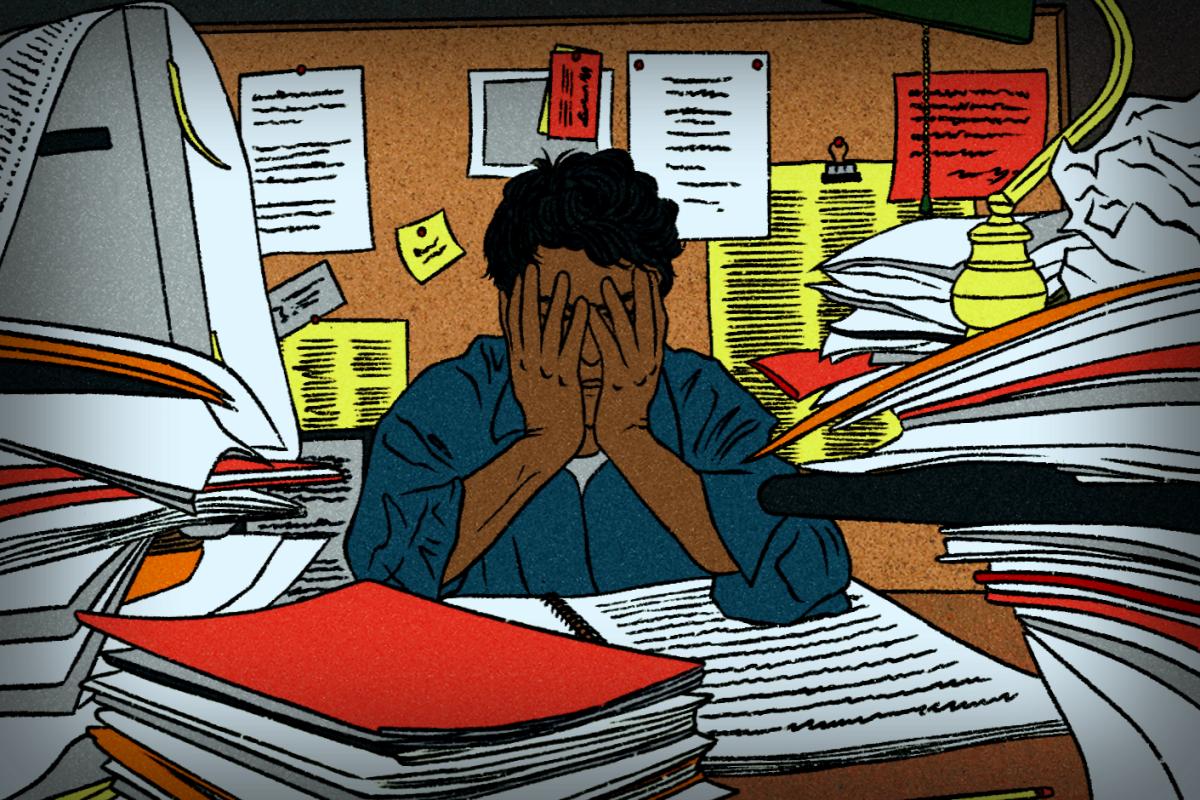As the job market faces uncertainty and companies increasingly reward employees for ‘exceeding expectations’, many Americans are grappling with a serious issue known as ‘time poverty’. This term has been adopted by psychologists to illustrate the persistent gap between the time people need and the time their jobs allow them to have.
A recent survey by Wondr Health has shed light on how deep this problem runs, revealing that around 62% of U.S. workers skip out on their entitled time off, feeling the constant pressure to always be on duty. Approximately one-third of workers don’t use about a month of their paid vacation every year.
Dr. Tim Church, chief medical officer at Wondr Health, emphasizes that, “We tend to be the harshest critics of our own time management. This leads to time poverty, resulting in an unbalanced work-life situation.” He warns that it’s high time employees and employers rethink workplace culture.
David Ballard, vice president at One Mind at Work, highlights how some work environments actually punish taking breaks. Stress and overwork are often seen as achievements rather than issues. Employees may skip leave for fear of being judged or penalized.
Ron Goetzel, a senior scientist at Johns Hopkins’ Bloomberg School of Public Health, shared with Newsweek that time poverty wields a heavy toll on individuals and society at large. Despite everyone being granted 24 hours in a day, many rush to pack their schedules without assessing how these activities impact their life quality or happiness.
The mental health consequences of this situation are evident. A study from 2020 found a strong link between time poverty and declines in mental health, productivity, and even physical wellness. Researchers noted that ‘feelings of time poverty have a more significant adverse effect on well-being than unemployment’. Regrettably, this important issue remains largely overlooked by decision-makers and employers.
The implications run deep, affecting not only workers but also businesses. Experts warn in Newsweek that time poverty leads to lower overall performance, higher absentee rates, and elevated turnover as employees feel burned out and underappreciated.
Dr. Chloe Carmichael, a clinical psychologist noted for her expertise in stress management, asserts that skipping time off heightens burnout risk, impacting employees and productivity. “Burned-out employees can foster resentment towards their workplace and ultimately do less,” she says.
Moreover, Dr. Church points out, “The costs are significant. When staff members are feeling stressed, creativity and productivity plummet. That’s missed potential right there.”
This situation reflects a broader issue of workplace stress, with several studies linking it to employees consequently searching for greener pastures elsewhere for healthier work climates.
Dr. Susan Biali Haas, a wellness expert, adds, “Burnout is complex, but chronic work-related stress without recovery only leads to emotional exhaustion and disengagement from productivity.”
Yasemin Besen-Cassino, a sociologist from Montclair State University, explains how the prevailing culture of overwork has become worse due to mass layoffs and economic instability. Plus, modern tech makes workers feel they must be connected even during personal time, adding to the pressure to stay involved via emails or meetings.
She highlights a tough reality where many use vacation days for childcare responsibilities, meaning those days off don’t actually serve as proper rest and recuperation.
However, experts signal pathways for betterment—some easy, others challenging. Carmichael proposes mandatory time off to alleviate mental pressure on employees. Meanwhile, stress researcher Rebecca Heiss reminds us that vacations alone can’t resolve workplace stress. Even after a retreat, employees return to piled-up emails and tasks that quickly overwhelm them.
There’s also advocacy for implementing designated ‘mental health days’, along with genuine investments in employee wellness initiatives and healthy communication rooted across workplaces. Others see that a company-wide cultural transformation is required to really make a difference.
Besen-Cassino stresses the importance of nurturing a work atmosphere that encourages and normalizes vacation time so everyone can rejuvenate effectively. “Shifting workplace culture is truly necessary to guarantee that workers can actually take their breaks for better health and productivity in the long run,” she notes.
Yet, as much as employers may hesitate, Dr. Church insists on the need to address worker stress openly. “Importantly, if businesses don’t back employee well-being, they run the risk of losing their best talent,” he warns. “Tackling burnout and time poverty isn’t just about being a better employer—it’s savvy business strategy.”





















